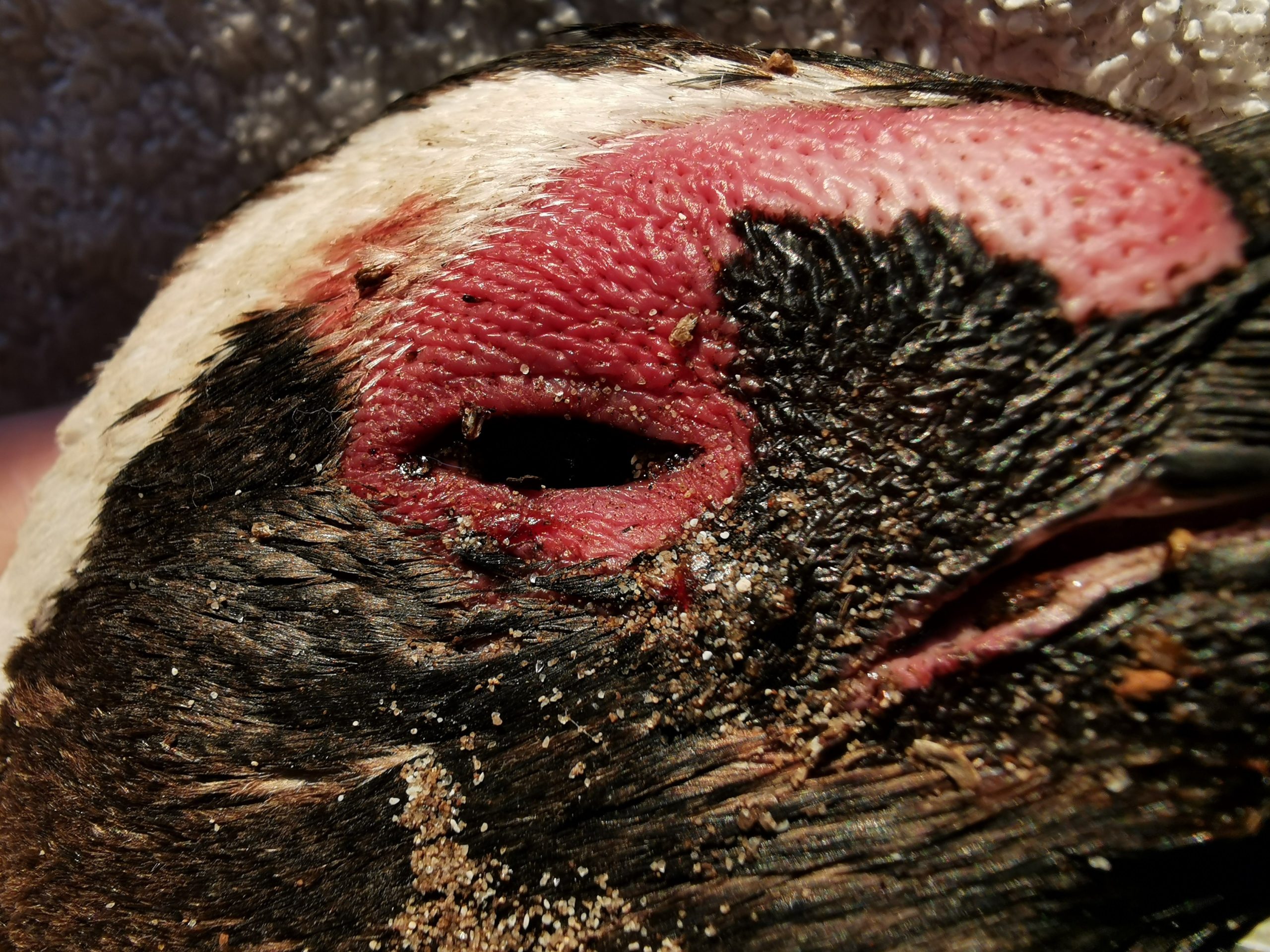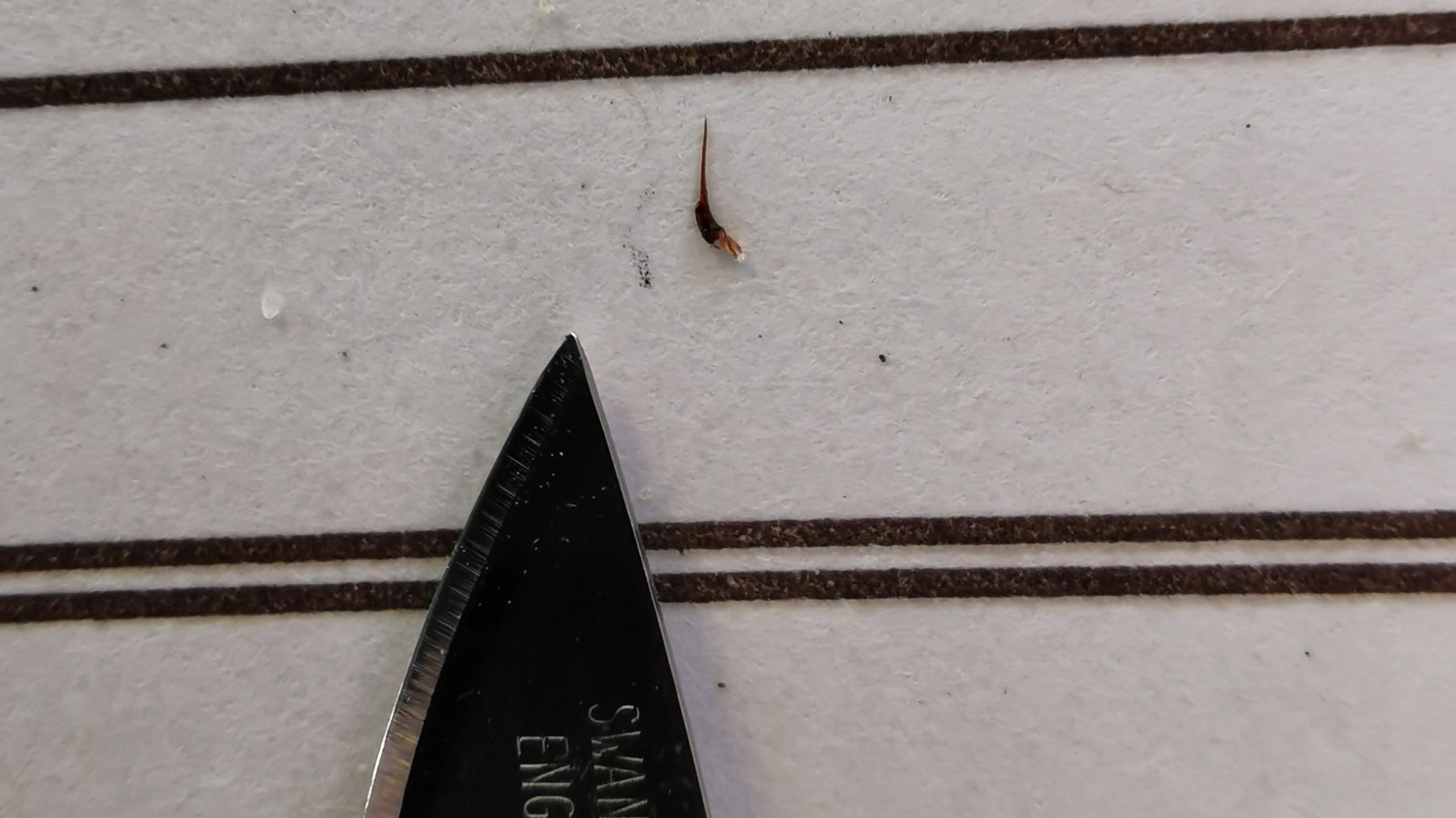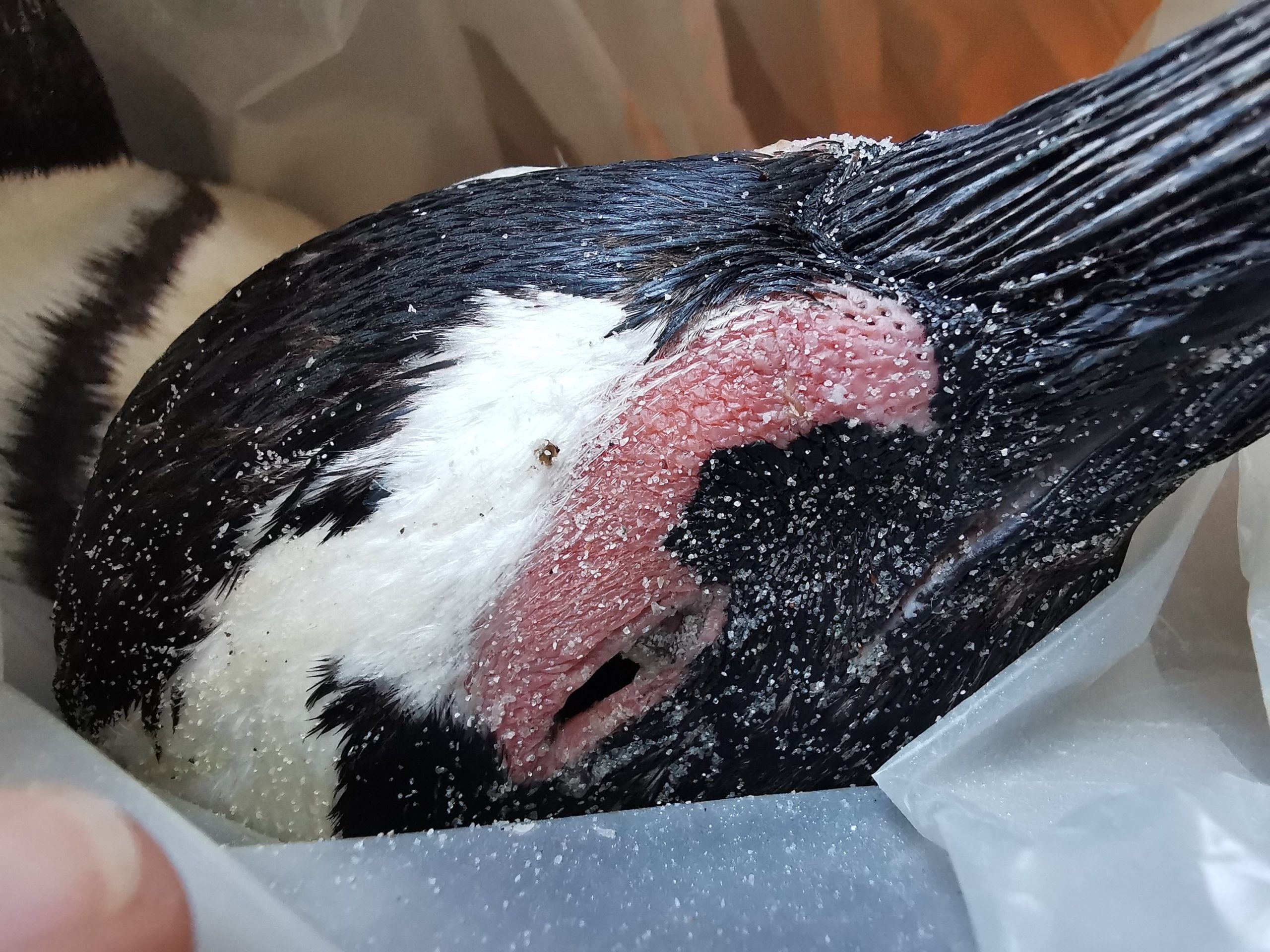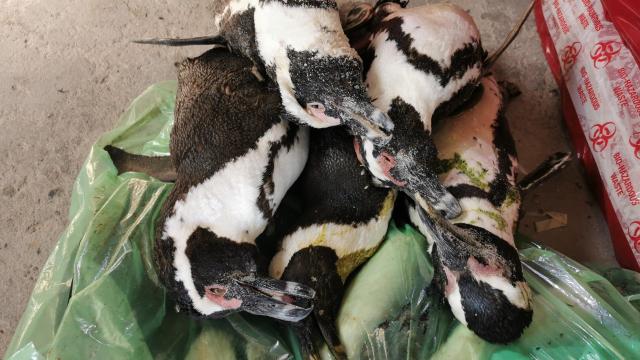A shocking scene took place late last week in South Africa, as swarming honey bees laid waste to dozens of endangered African penguins. We’re learning more about what happened that day and why the deaths are a such big blow to conservationists.
The incident occurred at the Boulders African penguin colony in Simon’s Town near Cape Town, South Africa. At some point between September 16 and 17, a swarm of bees killed 63 endangered African penguins (Spheniscus demersus). Rangers with Table Mountain National Park reported the grim news on the SANCCOB (Southern African Foundation for the Conservation of Coastal Birds) Facebook page.
Post-mortems of the birds revealed multiple bee stings, including stings around the eyes. Many dead bees were also recovered from the scene. Tests are still being done to determine if the penguins were killed by toxins or disease, but it seems clear that bees were responsible.

“A bee nest must have been disturbed, causing the bees to swarm this way,” Ronnis Daniels, resource development manager at SANCCOB, explained in an email. “It’s an unfortunate case of the penguins being in the wrong place at that time.”
African penguins will occasionally get stung by bees, but Daniels said nothing on this scale has ever been documented before. The foundation’s rangers are currently monitoring the nests “because if the birds had eggs or chicks then we will need to intervene to rescue them for hand-rearing,” she said, adding that they cannot yet confirm if the abandoned nests belong to the penguins stung by bees.
David Roberts, SANCCOB’s clinical veterinarian, visited the site at Boulders Beach along with representatives from South African National Parks and the City of Cape Town. The investigators sifted through the sand, finding a good number of dead bees. Upsettingly, the team found more than 20 stings on some penguins.

“The African penguin population is rapidly declining, and it is very sad to see the deaths of so many healthy, most likely breeding adults,” said Roberts in an emailed statement. “This unusual event is part of what can happen in a normal balanced ecosystem and if the penguins were not in such trouble already, it wouldn’t be such a tragedy.”
Roberts said the African penguin population is depleted and doing badly, with an estimated 10,300 breeding pairs left in South Africa. The loss of any individual bird is “very worrying for the species,” he said.

SANCCOB’s research manager Katta Ludynia said South Africa has lost over 40,000 breeding pairs in the past 20 years, the main threats being lack of food, competition with fisheries, increasing shipping traffic, oil spills, pollution, climate change, diseases, and more.
“Only about one third of all chicks fledged from all colonies will ever survive their first year at sea because they are not finding sufficient food,” Ludynia explained. “That is a tragedy and will lead to the extinction of the species.”
To ensure the ongoing survival of African penguins, SANCCOB is recommending that fishing restrictions be established around important breeding colonies. The foundation, which rehabilitates hundreds of injured penguins each year, is also advocating for the hand-rearing of chicks abandoned by their parents, the result of starvation, extreme weather, and oil spills.
“The loss of the adult penguins — most likely breeding birds — is indeed tragic for this endearing species but let’s focus on the real threats and make sure the African penguin survives into the future,” said Ludynia.
